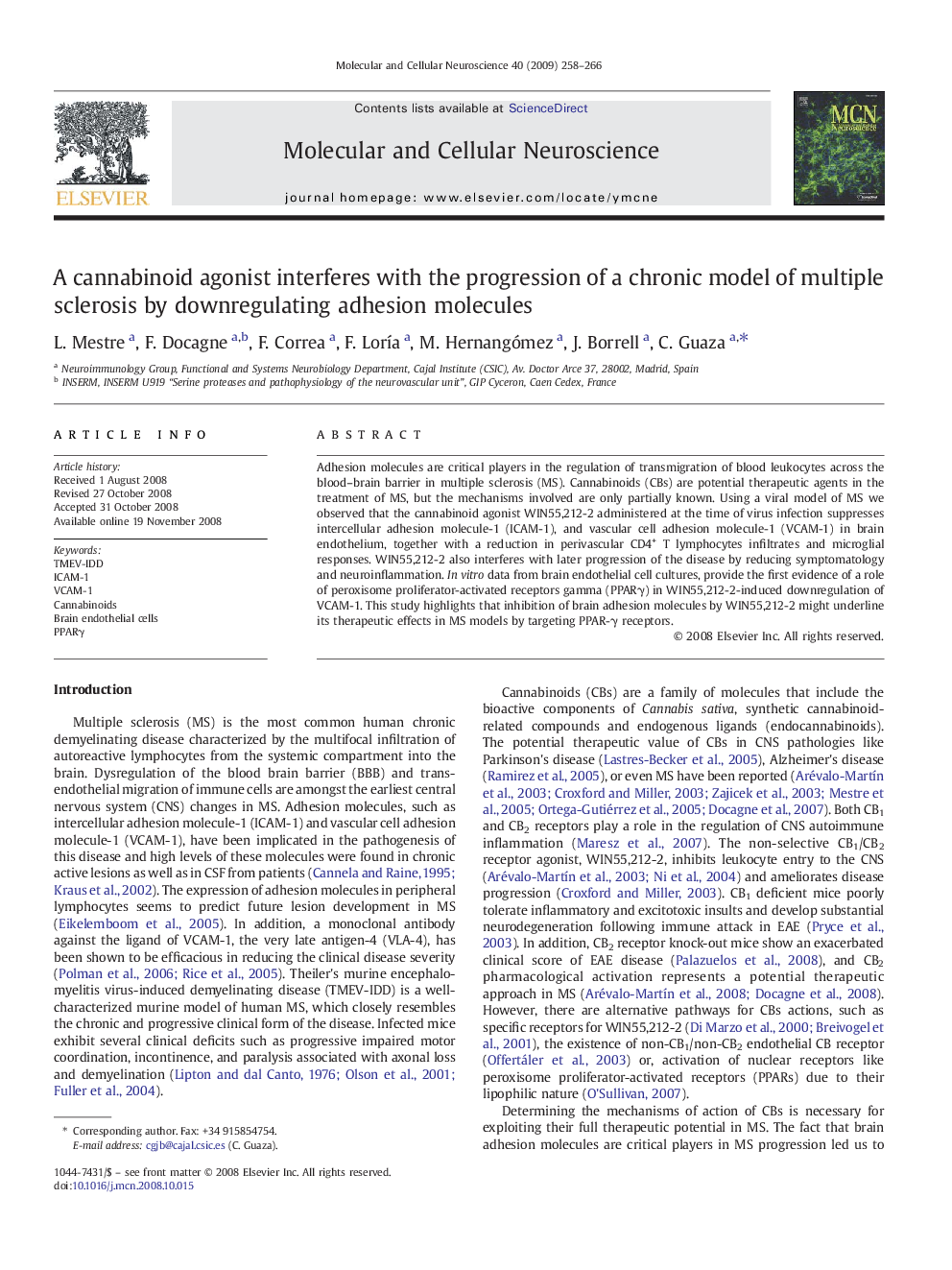| Article ID | Journal | Published Year | Pages | File Type |
|---|---|---|---|---|
| 10956722 | Molecular and Cellular Neuroscience | 2009 | 9 Pages |
Abstract
Adhesion molecules are critical players in the regulation of transmigration of blood leukocytes across the blood-brain barrier in multiple sclerosis (MS). Cannabinoids (CBs) are potential therapeutic agents in the treatment of MS, but the mechanisms involved are only partially known. Using a viral model of MS we observed that the cannabinoid agonist WIN55,212-2 administered at the time of virus infection suppresses intercellular adhesion molecule-1 (ICAM-1), and vascular cell adhesion molecule-1 (VCAM-1) in brain endothelium, together with a reduction in perivascular CD4+ T lymphocytes infiltrates and microglial responses. WIN55,212-2 also interferes with later progression of the disease by reducing symptomatology and neuroinflammation. In vitro data from brain endothelial cell cultures, provide the first evidence of a role of peroxisome proliferator-activated receptors gamma (PPARγ) in WIN55,212-2-induced downregulation of VCAM-1. This study highlights that inhibition of brain adhesion molecules by WIN55,212-2 might underline its therapeutic effects in MS models by targeting PPAR-γ receptors.
Related Topics
Life Sciences
Biochemistry, Genetics and Molecular Biology
Cell Biology
Authors
L. Mestre, F. Docagne, F. Correa, F. LorÃa, M. Hernangómez, J. Borrell, C. Guaza,
